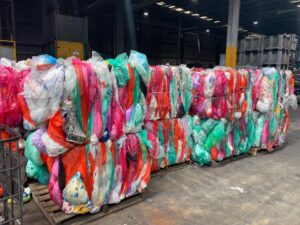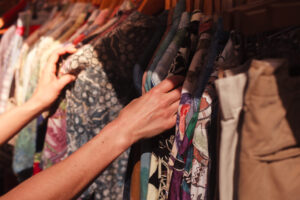Share
A study by the Australia Institute, Stuff Happens, found that women in particular find clutter distressing. They don’t necessarily have more clutter than men (the typical suburban garage would dispel that notion) but they tend to notice it more. Women are also more embarrassed by their clutter than men. The alternative to cluttering up our homes is simply to avoid acquiring unwanted or useless items in the first place. Among other things, this requires a more conscious approach to shopping: buying what we really need and will use.
Related documents
Between the Lines Newsletter
The biggest stories and the best analysis from the team at the Australia Institute, delivered to your inbox every fortnight.
You might also like
Soft plastic recycling is back in supermarkets!
For many of us, the end of June will mark the return of soft plastic recycling run by the Soft Plastics Taskforce (SPT), which is made up of the three major supermarkets: Woolworths Group, Coles Group and ALDI. But this may be premature since the joint recycling strategy from the Ministry of the Environment and
A new tax to help Australians kick their fast fashion addiction
France has become the first country in the world to tax ultra-fast fashion brands like Temu and Shein.
The Seamless scheme and developing an Australian circular textiles industry
Every single year in Australia over 200,000 tonnes of textile waste go to landfill, and more than 100,000 tonnes are shipped overseas. Australia must somehow scale this 300,000-tonne mountain of clothing if the nation is to make the textile industry circular by 2030.



